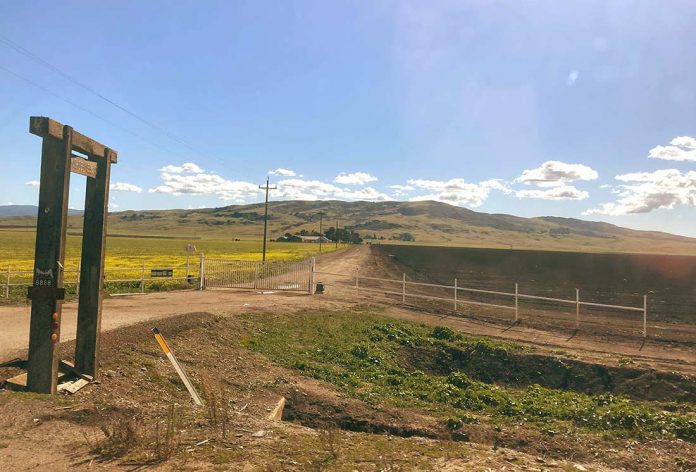
The proposed Strada Verde Innovation Park in northern San Benito County will continue through the planning process after the developer announced intentions to move forward with the project.
A split Board of Supervisors on March 23 decided to let the developer complete its application instead of sending it to the planning commission for an early review. The board voted 3-2 to take no action, with Supervisors Kollin Kosmicki and Mark Medina dissenting.
In the November 2020 election, 60 percent of voters rejected Measure N, which would have created the Strada Verde Specific Plan on a 2,777-acre agricultural property in the area of Highways 25 and 101 near Gilroy by the Santa Clara County line. The plan would have created a General Plan zoning amendment for a variety of commercial and industrial uses—including an automotive testing facility—as well as a 209.5-acre park.
The measure’s defeat does not prohibit the developer from pursuing its application, Assistant County Counsel Joel Ellinwood said, as the ballot initiative and the normal planning processes are independent of each other.
The supervisors on March 23 were asked to consider a handful of options for moving forward. They could have directed the planning commission to consider the project before the application was complete, or direct county staff to draft a County Code amendment that would establish a procedure for early screenings of proposed general plan changes.
After more than two hours of discussion, the majority of the supervisors voted to let the Strada Verde project continue through the normal planning process, with an unknown timeline.
In a March 10 letter to the supervisors, David L. Preiss of Holland & Knight, a San Francisco-based law firm representing the developer Bristol SB, LLC, requested the board take no action, as the applicant “does anticipate revising certain aspects of the project from what was identified in Measure N.” Deferring it to the planning commission incomplete would be “impossible and improper” for the commission to gauge the plan, he wrote.
“If the Board of Supervisors proceeds in this manner, it will deprive applicant and the property owner of federal and state due process rights, and therefore subject the County to legal liability,” Preiss wrote. “It would also implicate a strong showing of bias on the part of certain Board of Supervisors in evaluating the project, including the quasi-adjudicative actions related to other components of the project’s planning application.”
Ellinwood advised the supervisors that the county could be facing time in court if it moved forward with an early review.
“We have an explicit threat of litigation in Mr. Preiss’ letter,” he said. “It is not a hypothetical. We have an actual threat here that we’re dealing with.”
Scott Fuller, a representative of the developer, disagreed.
“In my reading of the letter, we did not explicitly threaten the county with a lawsuit as was characterized,” he said.
Fuller called the option to consider a county code amendment to establish an early screening process “totally surprising to us,” saying that it appeared to be a “strategy for certain members and interests” to eliminate further public engagement.
“We seek fair and equal treatment to have our application, which has not even been deemed complete, to continue to be properly processed,” he said. “We do not believe pursuing our project’s approval is a sign of disrespect to the voters of this community. Quite the contrary. We heard the voters and have been working since the election to address the public’s concerns.”
Fuller added that the planning process will allow the public to give input on the project, “in ways that were not possible during the initiative process.”
The majority of speakers during the public comment period urged the board to deny the project, while another showed support for Strada Verde and the potential jobs it could create.
Supervisor Bea Gonzales said the project is still entitled to the normal planning process whether the voters agree with it or not, adding that two of the options brought before the board asked them to “circumvent, bend, twist and contort the existing law.”
“Our responsibility is to be neutral and unbiased,” she said. “This is one supervisor’s impassioned plea for us to outright reject this project. I cannot and will not break the law.”
Kosmicki, who opposed Measure N during the election, responded to Gonzales, saying that “your personal political agenda to me apparently is to defy your constituents.”
“I can tell you what the voters said. They said no,” Kosmicki said. “It’s that simple. The voters aren’t stupid, and they understood what was at stake with Measure N. Whether we personally agree with them or not is irrelevant.”
Medina said the board needs to work together and base its decisions on the majority.
“Maybe we don’t agree with it, but it’s our job as five members to try to get along and make sure we move the county forward,” he said.
After the vote, Gonzales said she wanted the board to consider establishing an early screening procedure at a later date to prevent a similar situation from occurring in the future and “dividing the board further.”









